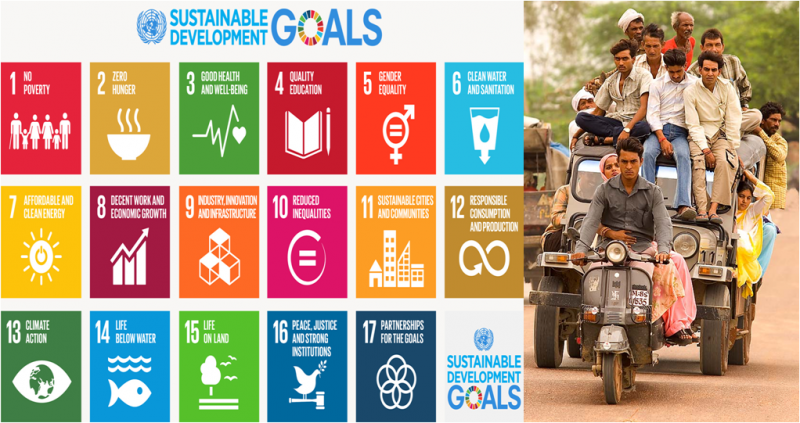2017 High Level Political Forum: Limited Focus on the Contribution of Transport toward Realizing the SDGs
Sustainable transport services and infrastructure are essential to achieving most, if not all, the Sustainable Development Goals (SDGs). Although sustainable transport is not represented by a standalone SDG in the 2030 Agenda, it is mainstreamed in a direct or indirect manner into several SDGs, especially those related to poverty alleviation; food security; access to health services, clean water, education, and employment; gender equality; energy; infrastructure; cities and human settlements; and climate change.
Survey on Rural Transport and Sustainable Development Goals
The SLoCaT Partnership is promoting the improvement of rural transport in partnership with, and support of the UK Aid-funded Research for Community Access Partnership (ReCAP).
Ramon Cruz represents SLoCaT Partnership at the Partnership Exchange Event during High Level Political Forum
New York, USA- July 18, 2016
Contribution of Transport Commitments to Global Goals on Sustainable Development: The 2015 SLoCaT Transport Commitments Report
“Sustainable Transport matters when it comes to improving people’s lives”. This together with: “The transport sector is taking important action to address the two key global policy processes of 2015: sustainable development and climate change” are major findings of the 2015 SLoCaT Transport Commitments Report.
SLoCaT Partnership presents draft comments on Zero Draft of Addis Ababa Accord for the Third International Conference on Financing for Development
Shanghai-March 24, 2015
The Partnership on Sustainable Low Carbon Transport is posting the following interim assessment of the zero draft of the Addis Ababa Accord, with a more formal response to follow after further consultation with SLoCaT Partnership members.
Key Elements SLoCaT Results Framework on Sustainable Transport Reflected in OWG co-Chairs' Proposals on post-2015 Sustainable Development Agenda
As part of the development of a new global sustainable development agenda, the co-chairs of an UN Open Working Group (OWG) published on 21 February an initial list of 19 Focus Areas that will be discussed by the OWG in 5 negotiating sessions up to the summer before the OWG will report to the UN General Assembly in September of 2014. Transport is not a focus area in its own right but is mentioned in several of the Focus Areas.
